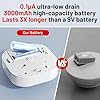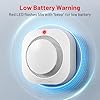Gold is one of the most popular metals to search for with a metal detector. But how deep can metal detectors detect gold? This is a question that gets asked a lot, so let’s take a look at how deep gold can be detected and what factors influence how deep a metal detector can detect gold.
Contents
How deep do metal detectors detect gold?
Metal detectors can be used to find all sorts of metals, including gold. They work by sending out electromagnetic waves that bounce off of metal objects and return to the detector. The depth that a metal detector can detect gold depends on a few factors, including the type of metal detector, the size of the gold, and the type of soil.
The benefits of using a metal detector to find gold.
A metal detector can be a very useful tool when prospecting for gold. Metal detectors can help you find gold nuggets that are otherwise hidden from view. They can also be used to locate gold deposits in bedrock or in soils.
Gold is often found in areas where there is a high concentration of other metals. This is because gold is often mixed with other metals in the ground. A metal detector can help you find these areas so that you can prospect for gold.
Metal detectors can also be used to find gold that has been buried. Buried gold can be difficult to find with just a simple metal detector. However, if you have a metal detector that is specifically designed for finding gold, it can be a very useful tool.
Overall, a metal detector can be a very useful tool for finding gold. It can help you find gold nuggets that are otherwise hidden from view and it can also help you locate gold deposits. If you are interested in prospecting for gold, then a metal detector can be a great asset.
The best places to use a metal detector to find gold.
Gold is one of the heaviest metals on earth and is often found in areas where there is a high concentration of other heavy metals. This makes sense because gold is often found in areas where there is a lot of geological activity, such as near volcanoes. Gold is also often found in riverbeds because it is heavy and is carried by the flow of water.
If you are looking for gold, the best places to use a metal detector are in areas where there is a lot of geological activity or where there are rivers. However, it is important to keep in mind that gold is not always easy to find and it can be difficult to distinguish between gold and other metals.
The different types of metal detectors and how they work.
Metal detectors are devices that are used to detect the presence of metal in an area. There are different types of metal detectors, each of which operates in a different way.
The most common type of metal detector is the magnetic metal detector. This type of detector uses a magnetic field to detect the presence of metal. Metal objects will disrupt the magnetic field, causing the detector to sound an alarm.
Another type of metal detector is the inductive metal detector. This type of detector uses an electric current to detect the presence of metal. Metal objects will cause the current to change direction, causing the detector to sound an alarm.
The last type of metal detector is the resistive metal detector. This type of detector uses resistance to detect the presence of metal. Metal objects will cause the resistance to change, causing the detector to sound an alarm.
How to use a metal detector to find gold.
If you want to find gold using a metal detector, there are a few things you need to know. First, gold is not magnetic, so you won’t be able to use a standard metal detector. Instead, you’ll need to find a metal detector that is specifically designed to find gold.
Second, you need to know where to look for gold. Gold is often found in areas where there is running water, such as rivers and streams. It’s also often found in areas that have been mined in the past.
Third, you need to be patient when using a metal detector to find gold. It takes time and practice to become good at using a metal detector, and it’s important to be patient when you’re first starting out.
Fourth, once you find a gold nugget, it’s important to dig it up carefully. If you dig too deeply, you could damage the nugget.
Finally, once you’ve found a gold nugget, you’ll need to clean it. The best way to clean gold is to use a gold pan.
By following these tips, you’ll be well on your way to finding gold using a metal detector.
The history of metal detectors and how they have evolved.
The first metal detectors were developed in the 19th century and were used primarily for security purposes. The early models were large and bulky, and not very effective. In the early 20th century, the first portable metal detectors were developed. These were smaller and more compact and could be carried around more easily.
Metal detectors really began to evolve in the 1960s, when new technologies were developed that made them more sensitive and more accurate. This led to the development of more specialized metal detectors, such as those used for gold prospecting. Today, metal detectors are used for a variety of purposes, including security, law enforcement, and recreation.
The future of metal detectors and how they may be used.
As our world changes and technology advances, so do the ways in which we detect things. Metal detectors have come a long way since their initial creation and there are now many different types available on the market, each with their own unique capabilities. The future of metal detectors looks bright as they continue to evolve and become more sophisticated. Here are some ways in which metal detectors may be used in the future:
1. Security: Metal detectors will continue to be used in a variety of settings for security purposes. They can be used to screen people and belongings at airports, government buildings, and other high-security areas.
2. Crime prevention: Metal detectors can also be used in public places such as shopping malls and schools to help prevent crime. They can be used to deter would-be thieves and help law enforcement identify potential weapons.
3. Search and rescue: Metal detectors can be used in search and rescue operations to locate people who are buried under debris or lost in remote areas.
4. Archaeology: Metal detectors are often used by archaeologists to locate buried artifacts and treasures.
5. Hobby: Metal detecting is a popular hobby for many people and there are a variety of clubs and organizations dedicated to it. People often use metal detectors to find coins, jewelry, and other interesting objects.
The future of metal detectors is sure to be exciting as they continue to be used in new and innovative ways.
Summary
Metal detectors can be used to find all sorts of things, including gold. But how deep can metal detectors detect gold?
It depends on the metal detector. Some metal detectors can only detect gold an inch or two below the surface, while others can detect it several feet below the surface. The depth at which a metal detector can detect gold also depends on the size of the gold nugget. Smaller nuggets will be harder to detect than larger nuggets.
So, if you’re looking for gold with a metal detector, it’s important to know what kind of metal detector you have and how deep it can detect gold.



















